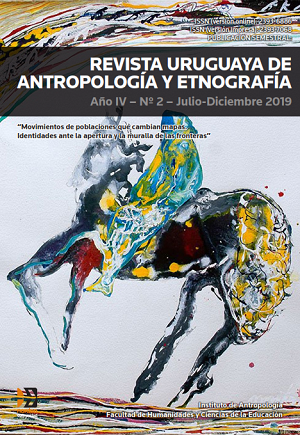
Published 2019-12-12
How to Cite
Abstract
“The analytical ability is the spiritual power that equals thought to vision and coalesce
them all together in a single item, the usually opposed activities of intuition and deduction.
This ability takes the problems at hand, at a medium distance avoiding doubling
the source of errors: deducing from a too small number of details lost to sight; get lost
in thought in the search for hidden causes of phenomena when everything must be
taken in a single concatenation from what is seen. The ideal detective is the one who,
at the same time, opens his eyes wide on the visible and closes them to order elements
through their inner vision”. (Jacques Rancière, The edges of fiction, 2019 [2017]: 78.
Edhasa, Buenos Aires.
“Understood as a critique of the anthropomorphic common sense that paranoidly thinks
that what it cannot see or does not want to see is hidden, Archeology does not “study”
content: documents or thoughts, images, themes, or obsessions that are “hidden” in the
“works”, but that proposes to describe (and rewrite) from outside, and de-psychologize
the discourses, treated as objects produced by discursive practices.” (Ruben Tani; Octavio
Nadal. The persistence of memory. Formalization and re-presentation of modern
disciplines, 2016: 92. HUM Publishing House, Montevideo)





